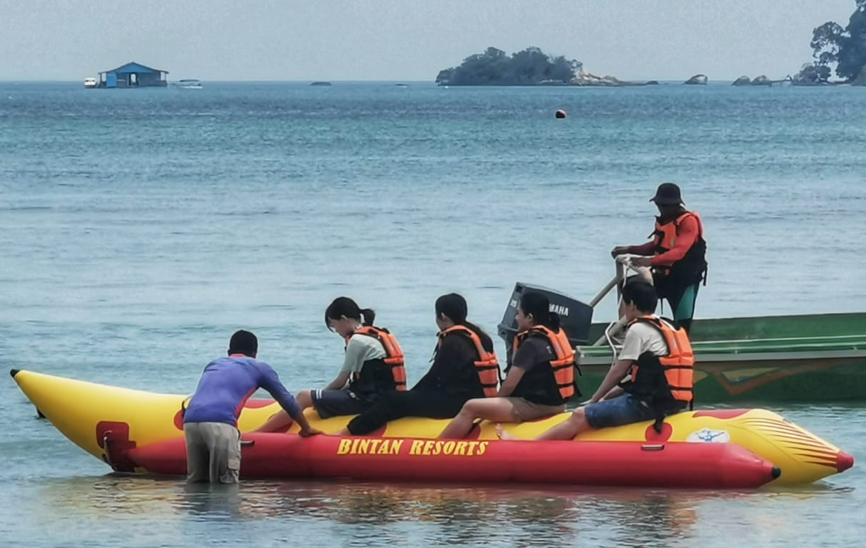The date stamp of when England truly began getting ready for this winter's Ashes is debatable.
'It's something we've been doing for a long time,' Ben Stokes said of his side's preparation during his first media conference of this two-month tour.
It's certainly hard to recall the period when Stokes, the Test captain, and Brendon McCullum, the head coach, weren't making decisions that correlated to success in Australia, whether it be identifying and investing faith in personnel or developing the team's style of play.
If you had to pinpoint it, you might say Tuesday, November 11 at Lilac Hill, just 10 days shy of the first Test, a dozen miles down the road - because that was when the 16-strong touring squad netted together for the first time.
Until that point, various factions were in disparate places around the globe.
'The schedule is pretty jam packed and so you are not able to prepare how teams probably would have done 10, 15, 20, 30 years ago,' Stokes continued.
England captain Ben Stokes has claimed that the side have been preparing for the Ashes for 'a long time' despite the date for the official start of their prep being unclear
England's white-ball tour of New Zealand ended on November 2, reducing their lead-in time
'There's a lot of factors that have changed, but we put a great deal of time and effort into how we prepare for every series. So come the 21st of this month, we know that we will have put everything possible we could have done to be in the right place, go out there and hopefully start the tour off how we want.'
Modern international itineraries dictated that England did not conclude their white-ball tour of New Zealand until November 2, reducing their lead-in for the five Tests against Australia.
According to assistant coach Marcus Trescothick, keeping minds and bodies as fresh as possible is essential for a tour of this magnitude.
'We've been good at sort of adapting into different conditions, in different places in recent years,' he tells Daily Mail Sport.
'You're around for four months, and that's really tricky, with the amount of cricket that these guys play nowadays. We're getting the guys together, keeping it short and sharp and intense and working in that fashion.'
So short, in fact, that it featured just one match, against England Lions, the circumstances of which made it impossible to replicate the 'balls to the wall' pledge Stokes had given in advance about the match's intensity.
An internal knockabout was certainly incomparable to the hat-trick of wins Andrew Strauss' team of 2010-11 racked up in the days when states still had space in their calendars - and a lingering desire to scalp the Poms before the main event.
'Luckily, I don't have to worry about those things, I just turn up and play my role in the team,' said Zak Crawley, after taking a first innings half century off England Lions.
Assistant coach Marcus Trescothick emphasised short, sharp, intense sessions to keep players fresh during a long winter
'As far as I'm concerned, it's been good prep, getting used to the weather, getting used to the flies [a feature of playing in Australia].'
To be successful in Australia requires adaptability and skill - but perhaps most of all unity. Ashes tourists of yesteryear have oft said Test series here feel like you're playing against 20 million opponents, not 11.
Team bonding through off-field socialising has been a recurring feature of McCullum's three-and-a-half-year tenure, but it is noticeable how integral it has become this winter.
Last month, they began the limited-overs tour of New Zealand with four days in Queenstown, in the Southern Alps, trekking, go-karting and golfing. Midway through the tour, the entire group were invited for a barbecue at McCullum's family home in Matamata, a 90-minute drive south of Auckland, where he proudly showed off his seven racehorses.
The sporting environment McCullum promotes is one of equality and inclusivity. He wants everyone to feel comfortable mucking in together.
One of the players joked that Jeetan Patel, one of McCullum's assistant coaches, made for the BBQ coals 'as if it was his house,' to take up the role of chef and ensure everyone was fed.
There is a neat link to McCullum's use of Gilbert Enoka, the former New Zealand rugby union mental performance coach, here.
Enoka addressed England's limited-overs cricketers with an hour-long welcome in Christchurch in October, as he did the Test team at the start of last summer, and individuals have been able to seek him out for one-to-one chats both at the start of the New Zealand tour and here these past few days in Perth.
The sporting environment McCullum promotes is one of equality and inclusivity. He wants everyone to feel comfortable mucking in together
Former New Zealand rugby union mental performance coach, Gilbert Enoka, has essential in reinforcing team-culture principles
One of the phrases Enoka uses when discussing the building of a healthy team culture is 'don't take the sausage.' It relates to eating, when players line up as a group. This creates the prospect of those at the back of the queue missing out on the best stuff, including the sausages - if those at the front do not display the necessary restraint.
Enoka is renowned for coming up with the 'no dickheads policy' during the All Blacks' dominance a decade ago when they broke their World Cup drought in 2011 and then lost just three Tests in 54 on the way to defending their title four years later. Another one of his buzz phrases, 'we beats me', comes through whenever he talks about achieving success.
It was certainly all hands on deck at the two-and-a-half hour first squad session of the tour, as Adam Hollioake and David Fulton, two former county captains who happen to be in Australia, added to the number of throw-down operatives, offsetting the loss of England Lions assistant coach Graeme Swann, who has left the tour temporarily for a family matter back home.
Twenty-four hours earlier, an optional net that included Joe Root, Mark Wood and Jofra Archer amongst its small cohort, concluded with the former Kiwi captain Tim Southee - one of two bowling coaches here along with David Saker prior to Friday's series opener - having a spell of his own in preparation for playing in the ILT20 next month.
One of the features of England net sessions under Stokes and McCullum - whether it be optional or all-in, an hour or all morning - has been music.
What 2005 Ashes-winning coach Duncan Fletcher would have made of it, goodness knows. But the booming stereo has become a permanent feature of practice. To the point where Wood complained it wasn't loud enough as he upped his injury comeback to bowling at full tilt at Basin Reserve in Wellington recently.
'No Diggity' by Blackstreet and Dr Dre is quickly becoming the earworm of this tour, although Tuesday at the Guildford Midland club ground appeared to be a theme day, with a Coldplay playlist providing the backdrop. The sound of Elvis Presley that afternoon was a giveaway that Lions coach Andrew Flintoff had hijacked the playlist.
Old school coaches might pooh-pooh such an atmosphere, but there is method to it - teaching focus amid distraction. Female gymnasts use their peers to create distractions - moving in their eyelines and making random shouts and claps during practice for beam routines in the run-up to major competitions.
The booming stereo has become a permanent feature of practice. To the point where Mark Wood complained it wasn't loud enough as he upped his injury comeback
It encourages the mind to focus on the task at hand. And falling from a beam can be more painful than being struck on the shoulder by an Archer short ball, as Jamie Smith was two days before the in-house warm-up match.
The only break to the tranquility of a game in which players swapped sides to maximise opportunities for Ashes squad members was the occasional plane coming in to land at Perth Airport.
Oh, and a shriek of 'F*** off, you Pommie c***s,' from a driver crossing the Swan River on the first morning of a contest that drew a couple of hundred spectators each day.
Magnifying both the sentiment and the footfall 300 times over should prepare the England players for what lies ahead at the Optus Stadium.
Some of the squad geared up for the hostile conditions in a heated tent at Loughborough in early October, practising on pitches made from Australian soil, accustoming themselves to the increased sweat and extra bounce they will encounter during the first Ashes Test.
Other than that, players have been empowered to select their own preparation programmes: Gus Atkinson went to New Zealand ahead of the first of six white-ball internationals, bowling regularly in the nets to Twenty20 squad member Crawley; Josh Tongue and Wood arrived a week later to do the same; Archer went to Barbados because the ECB acknowledge how dedicated he is to fitness and how well he works under Chris Jordan, one of a number of ex internationals of recent vintage placed on a new ECB coaching programme by men's director of cricket, Rob Key.
Most of all, however, England wanted their players arriving on this tour happy and relaxed - because they are convinced that leads to them playing their best cricket.
Stokes came via a visit to see his mum, Deb and other family members across the Tasman Sea in New Zealand. Root, Harry Brook, Crawley, Jacob Bethell and Brydon Carse and a number of the coaching staff also came from New Zealand, having used the week off between tours to play golf.
England's only warm-up match was an internal game against the England Lions earlier this month
The ECB prioritised players arriving happy, refreshed and relaxed, believing this leads to better performance
Wicketkeeper Smith headed to Dubai, a convenient halfway house to spend a week with his partner and toddler son.
Golf remains the most popular pastime between matches and training, although padel would give it a run for its money if more courts existed across the antipodes.
The players are encouraged to be comfortable in their own skins. For example, Crawley was a one-man fan club of Celebrity Traitors on the Kiwi leg of the winter, rushing back to his room to catch-up. And you can always find Archer by the hotel swimming pool.
A core of the bowling group, most of whom opted to head straight to Perth in the week off, went for a spa day in the city the day before the three-day Lions match.
And despite this being the age of technology, a card school regularly forms in the team room at the hotel, with Noms the game of choice.
Independence is promoted. Not many international sports tours allow players to drive themselves to training sessions, as England have done here in half a dozen pool cars.
They eat together too, of course. Around training and matches that means plenty of high-protein food. A typical menu might include grilled chicken with red peppers and feta and cod with a choice of mash or boiled potatoes, plus an avocado, tomato, red onion and rocket salad as an accompaniment.
Plates of banana bread, energy-providing Frooze Balls and nut snack shots are scattered liberally in the lunchroom and changing areas.
On Tuesday, the players will move to the final leg of preparation, training for three days on the bouncier pitches at the Optus
Under Stokes and McCullum, all five previous tours with minimal warm-ups began with first-Test wins
Physically, this England squad look more ready than any in memory, with 30-somethings Archer, Stokes and Carse, in particular, in peak condition.
On Tuesday, the players will move to the final leg of preparation, training for three days on the bouncier pitches at the Optus and looking at video footage of the Australia players they may not have come across before - like uncapped duo Jake Weatherald and Brendan Doggett - should they so wish.
This visualisation process begins with the ECB's data crunchers back home and lands, in the form of clips highlighting strengths and weaknesses, on the laptops of analysts and coaches here.
Outsiders will debate whether they have done enough work on the ground, but England remain highly confident in their methods.
All five previous Test tours under Stokes and McCullum have featured one or fewer warm-ups. All included first Test victories.
How the country would welcome a sixth in what has the potential to become a seismic winter. Win down under and everyone will remember that date stamp.

 3 months ago
94
3 months ago
94

















































